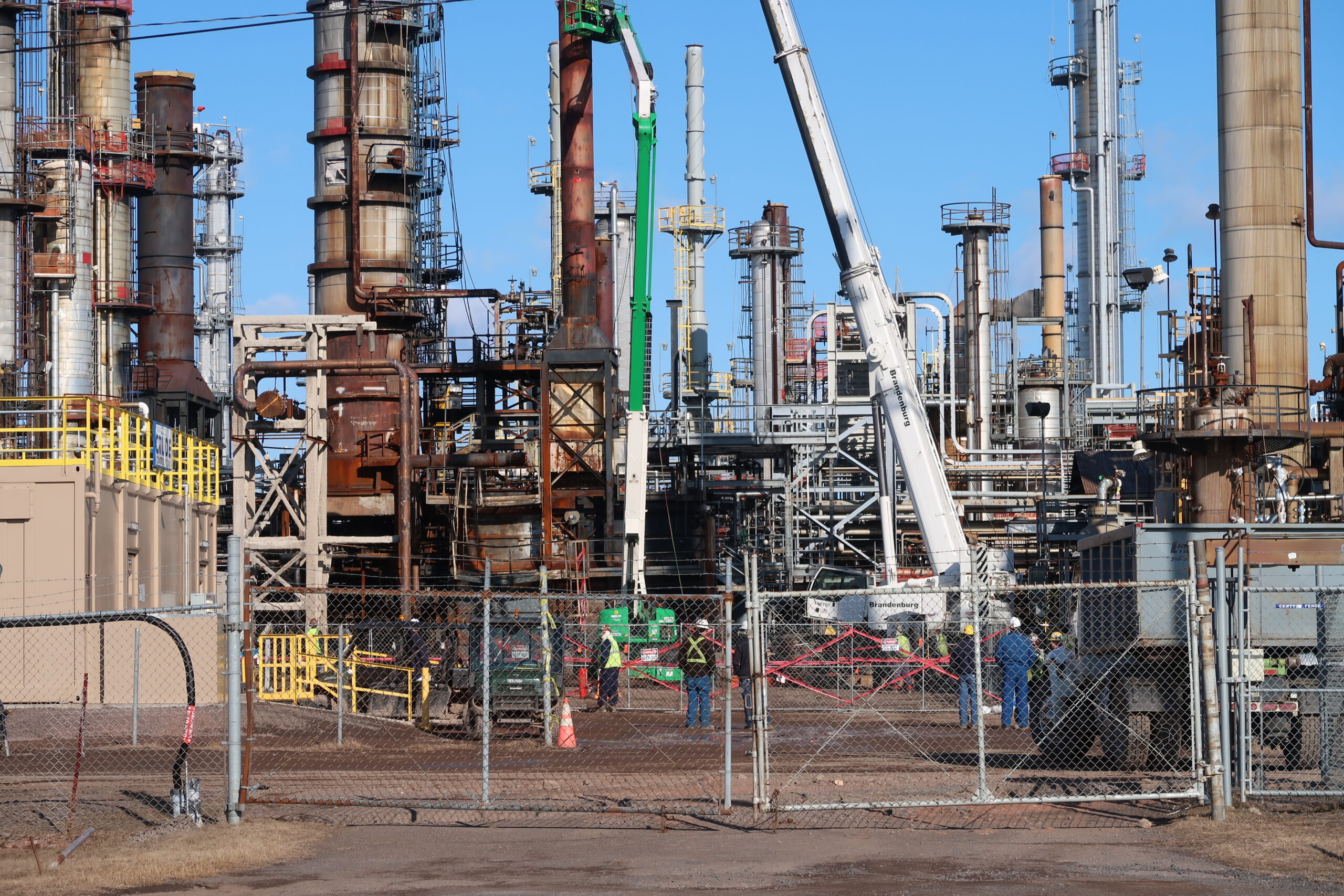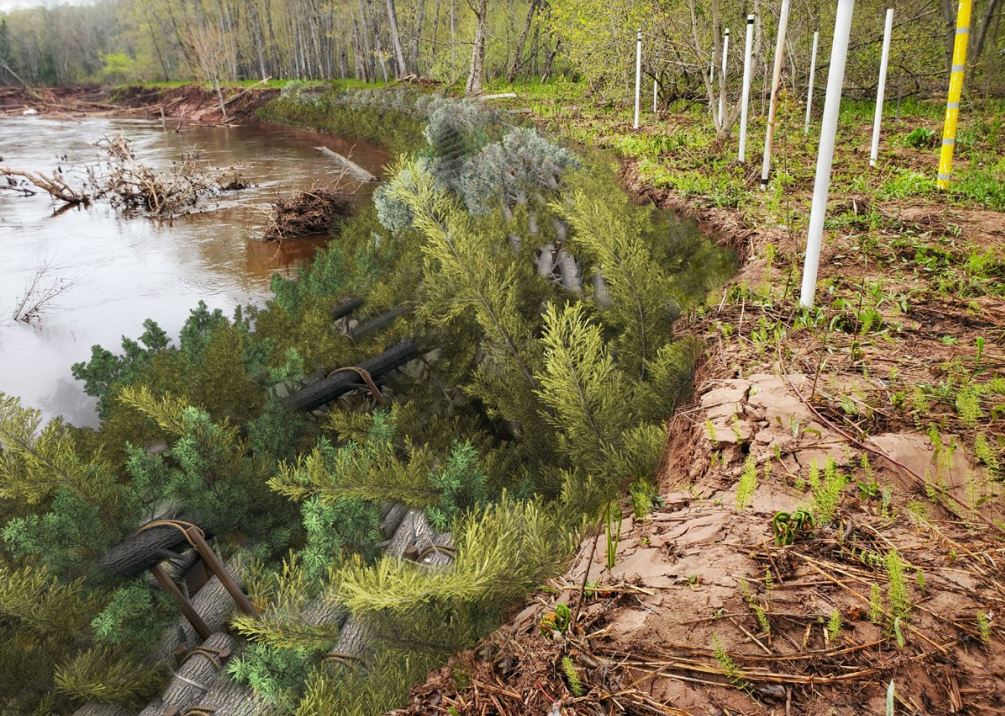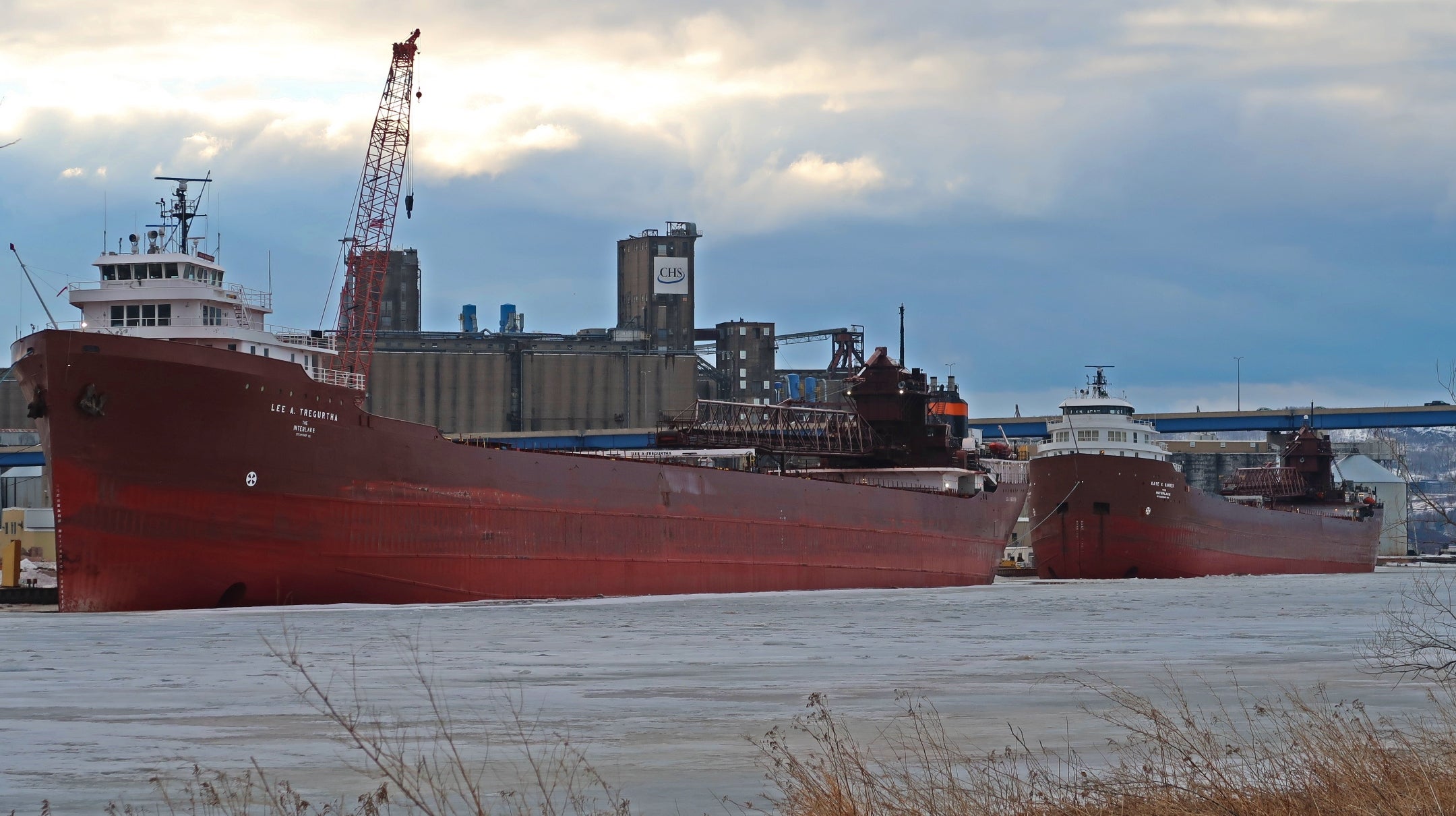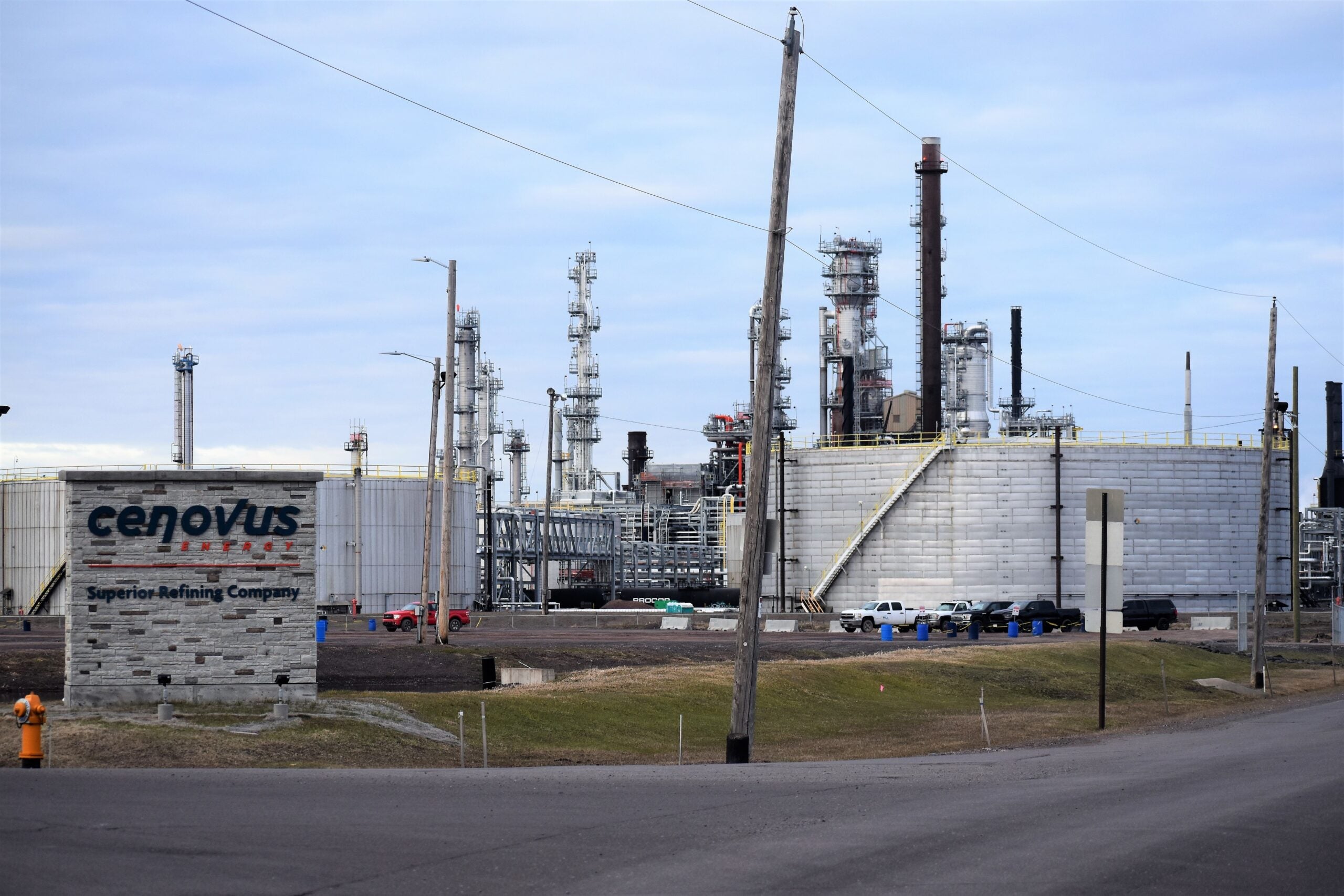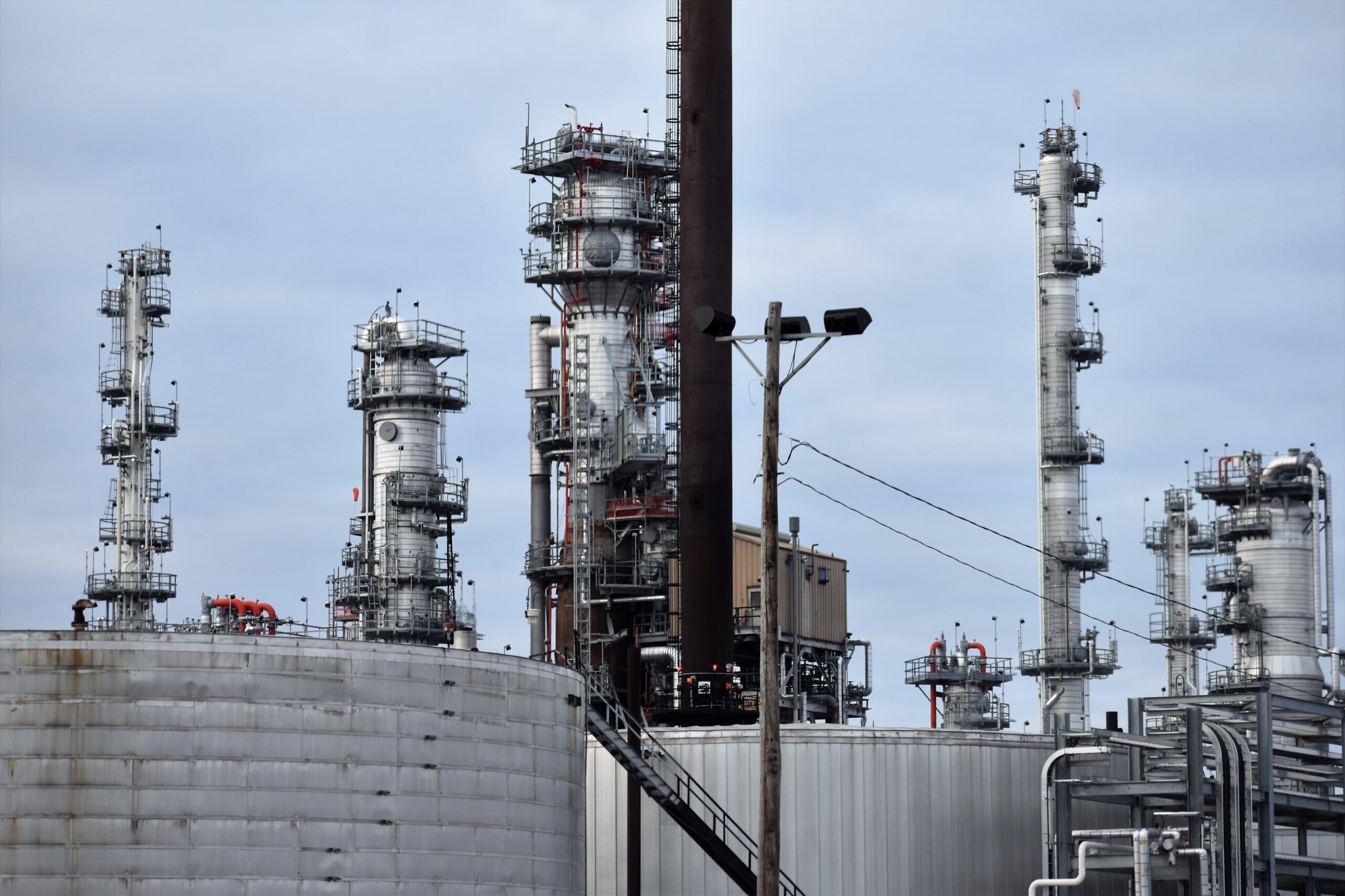Husky Energy says it has received approval for its $400 million plans to rebuild the Superior oil refinery and plans to begin construction immediately. The explosion and series of fires in April of last year injured 36 people, caused a temporary evacuation and damaged the refinery’s equipment and storage tanks.
Husky, which does business as Superior Refining Co., in Wisconsin, applied for a permit with the Wisconsin Department of Natural Resources earlier this year, which issued a letter of approval on Friday.
As part of the rebuild, the refinery’s fluid catalytic cracking unit reactor will be replaced and all downstream equipment that was damaged will be rebuilt. In addition, asphalt tanks damaged in the explosion will either be repaired or replaced.
Stay informed on the latest news
Sign up for WPR’s email newsletter.
Husky will also install several new permanent pipelines that will run to the Enbridge terminal and Plains Midstream, which deal with transport and storage of petroleum products and natural gas liquids.
“Our continued investment in this refinery and the community will support the Superior-Duluth regional economy through jobs, procurement, taxes and essential energy products for years to come,” said Husky CEO Rob Peabody in a news release.
At an August hearing on the rebuild permit, business and labor groups touted the refinery’s economic benefits on the community and efforts to improve safety of the operations moving forward, including Superior’s Bruce Thompson, executive vice president for National Bank of Commerce.
“It’s some of the best family jobs that we have in the community, providing really good wages and benefits,” said Thompson in an interview Monday.
The Husky refinery has around 200 permanent jobs with a $27 million payroll, according to the company. Around 350 jobs are expected to be created during the rebuild.
Thompson said he lived within three miles of the refinery for 50 years and never felt unsafe, citing the company’s safety improvements and technological upgrades to prevent the risk of another incident.
“I really feel like much of that has been mitigated and managed, and that’s why you have professional people and workers with good training on the job,” Thompson said.
Other Twin Ports residents and tribal members have said the rebuild props up an industry that relies on fossil fuels and accelerates the effects of climate change, including Julia Johnson. Johnson cited the rebuild takes on new meaning after recent climate strikes.
“It’s unfortunate to see they’d rather make a buck than invest in a solid future for us,” said Johnson.
They also expressed frustration over Husky’s plans to continue using hydrogen fluoride, a highly toxic chemical, as part of its refining process.
The refinery plans to make safety improvements to the existing alkylation unit, including a rapid acid transfer system that would capture any hydrofluoric acid in the event of a release.
“We’re getting a better safer refinery than we had before the fire,” Superior Mayor Jim Paine said.
Ginger Juel, co-founder of activist group Twin Ports Action Alliance, said she’s disappointed with the company’s plans for rebuilding the refinery, citing it’s continued use of hydrogen fluoride and lack of air monitoring in the community. She noted recent resolutions by Duluth and Superior have supported rebuilding a safe refinery.
“We lack the political will to build the safest refinery possible,” Juel said.
The group has undertaken an effort to install nine air monitoring devices that will track levels of particulate matter, such as soot and smoke, at locations throughout the Twin Ports. Juel said the first monitor was installed in Duluth within the last week. The monitors do not track readings of gases, such as hydrogen fluoride.
“People can make a decision based on the data whether they should evacuate or stay or use an air mask,” said Juel.
Juel said the monitors will continuously track levels and provide a baseline of air quality to distinguish from aberrations due to a specific cause. The monitors are PurpleAir sensors that are also being installed by the state of Minnesota as part of its 2020 Air Monitoring Network Plan. She said the sensors will be installed at businesses and homes throughout Duluth and Superior, including on the property of Superior resident Kay McKenzie. She said she already has a volatile organic compound (VOC) filter in her home.
“I want to have my air as clean as it can be,” McKenzie said.
The company expects to refine an average of 45,000 barrels of oil per day when it resumes operations, which will increase its downstream capacity to 400,000 barrels per day.
The company bought the Superior refinery from Calumet Specialty Products in 2017. Demolition of equipment that was damaged in the explosion is largely complete. Husky expects to resume partial operations next year and full operations in 2021.
Wisconsin Public Radio, © Copyright 2024, Board of Regents of the University of Wisconsin System and Wisconsin Educational Communications Board.

